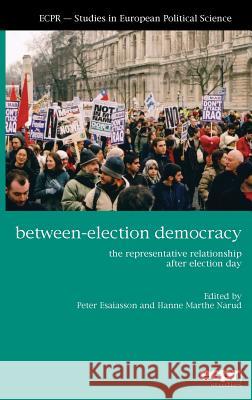Between-Election Democracy » książka
Between-Election Democracy
ISBN-13: 9781907301988 / Angielski / Twarda / 2013 / 234 str.
Between-Election Democracy
ISBN-13: 9781907301988 / Angielski / Twarda / 2013 / 234 str.
(netto: 469,01 VAT: 5%)
Najniższa cena z 30 dni: 487,00
ok. 16-18 dni roboczych.
Darmowa dostawa!
Why do we need European integration in increasingly fragmented and antagonised European societies? How can European integration relate to the national stories we carry about who we are as a nation and where we belong? What to do with the national stories that tell traumatising tales of past loss and sacrifice, and depict others as villains or foes? Can we still claim that our national states are the most legitimate way of organising European political communities today? Engaging with these big questions of European politics, Nevena Nancheva tells a small story from the periphery of Europe. Looking at two post-communist Balkan states ‒ Bulgaria and Macedonia ‒ she explores how their narratives of national identity have changed in the context of Europeanisation and EU membership preparations. In doing so, Nancheva suggests that national identity and European integration might be more relevant than previously thought.
Challenged by the notion that the system of government known as representative democracy is more elitist than is commonly assumed, contributors to this book seek new approaches to empirical studies on the relationship between citizens and their chosen representatives. The book focuses on the way in which representatives and citizens interact during mandate periods between elections.It contributes in three ways to previous research on the representative relationship. First, by thinking broadly about between-election phenomena, it integrates research literatures which study representative relationships parallel to each other, on separate tracks. Second, it aspires to identify questions that have remained unanswered, or even unidentified, in previous representation research. Third, it suggests a reconceptualisation of responsiveness, which acknowledges that representatives are required to communicate their reason for actions but not necessarily to adapt to citizens wishes and views.











